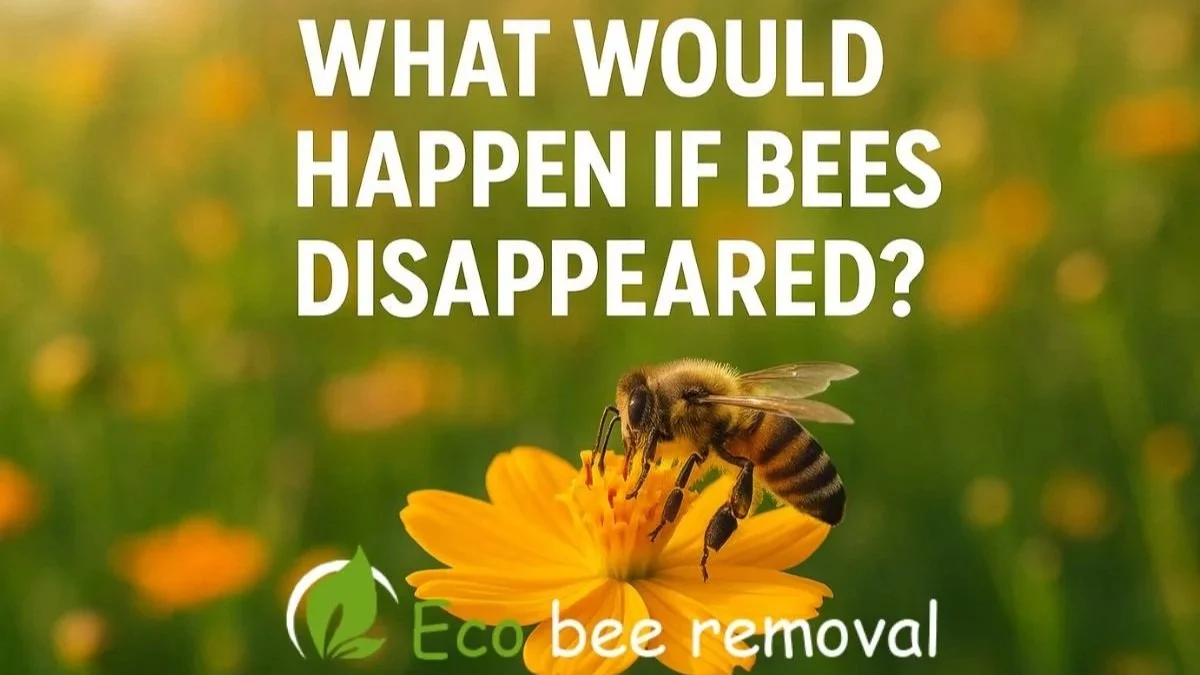What Happens If Bees Vanish? The Alarming Truth Ahead.
“Bee pollinating flower in meadow, highlighting importance of bees”
Have you ever wondered what the world would look like if bees vanished? These tiny, buzzing creatures might seem small, but their role in our planet’s ecosystem is massive. Bees are responsible for pollinating nearly one-third of the food we eat. From fruits and vegetables to nuts and seeds, bees quietly power the global food supply chain.
But what if one day they simply disappeared? What would that mean for nature, our food, and human life as we know it? Let’s take a closer look at the devastating consequences of a world without bees — and why protecting them is more important than ever.
The Essential Role of Bees in Pollination
Bees are among nature’s most efficient pollinators. As they travel from flower to flower collecting nectar, they transfer pollen, helping plants reproduce. This process might sound simple, but it’s vital for the growth of:
Fruits: Apples, blueberries, melons, and strawberries.
Vegetables: Cucumbers, pumpkins, and peppers.
Nuts and seeds: Almonds, sunflower seeds, and cashews.
Without bees, these crops would struggle to grow, leading to a dramatic drop in global food production.
According to the Food and Agriculture Organization (FAO), over 75% of the world’s flowering plants depend on pollinators, including bees. That means without them, the global ecosystem would begin to unravel.
What Would Happen if Bees Disappeared?
If bees were to disappear, the effects would be felt far beyond just our dinner plates. Here’s what could happen:
1. Massive Decline in Food Production
Bees pollinate around 70 out of the top 100 crop species that feed humans. Without them, crops like avocados, coffee, and almonds could nearly vanish. Farmers would have to rely on hand-pollination — an expensive, time-consuming process that most agricultural systems can’t sustain.
As food production drops, prices would skyrocket. Everyday items like honey, fruits, and nuts would become luxury goods. The global economy, especially in agriculture-dependent countries, would face severe disruption.
2. Loss of Biodiversity
Bees don’t just help crops; they also pollinate wildflowers and forest plants. If bees vanished, many plant species would fail to reproduce, leading to a collapse in plant diversity.
When plants die out, so do the animals that depend on them for food and shelter — including birds, insects, and small mammals. This chain reaction could trigger a major ecological imbalance, threatening entire ecosystems.
3. Impact on Livestock and Dairy
Bees play a silent role in the livestock industry too. Many of the plants that bees pollinate — like clover and alfalfa — are key feed sources for cows and other grazing animals.
Without bee-pollinated plants, livestock diets would suffer, affecting meat, milk, and cheese production. So even people who don’t eat fruits or vegetables would feel the consequences of a bee-less world.
4. Rising World Hunger
The disappearance of bees would mean fewer crops, less variety, and higher food costs. Developing nations, where people rely heavily on affordable plant-based foods, would be hit the hardest.
This could lead to a rise in malnutrition and food insecurity worldwide. In short, bees help feed billions — directly and indirectly. Without them, hunger would become a far more serious global issue.
5. Collapse of the Honey Industry
Of course, one of the most obvious losses would be honey itself. Beekeeping supports millions of livelihoods around the world. If bees disappeared, the honey industry would collapse — along with industries that depend on beeswax, propolis, and royal jelly.
These natural products aren’t just sweet treats; they’re also used in medicine, skincare, and countless eco-friendly products. Losing bees would mean losing many sustainable resources.
Environmental Effects: More Than Just Food
Bees don’t only support agriculture — they also protect the planet in subtle ways. Healthy bee populations promote:
Soil health by enabling plant growth and preventing erosion.
Carbon capture, since plants absorb CO₂ during photosynthesis.
Biodiversity, keeping the natural food web in balance.
Without bees, we’d see more barren land, fewer forests, and a faster rate of climate change. That’s right — saving bees also helps fight global warming.
Why Are Bees Disappearing?
Sadly, bees are already in trouble. Populations are declining worldwide due to several major threats:
Pesticide use – Chemicals like neonicotinoids harm bees’ nervous systems.
Habitat loss – Urbanization and farming reduce natural nesting and feeding areas.
Climate change – Unpredictable weather disrupts bees’ life cycles and food sources.
Diseases and parasites – Varroa mites and fungal infections weaken hives.
If these trends continue, bee populations could drop beyond recovery — and with them, much of life on Earth.
How We Can Prevent Bee Extinction
The good news is that it’s not too late. By making conscious choices, individuals, farmers, and governments can help protect bees and restore balance to nature.
Here are some eco-friendly actions everyone can take:
Support live bee relocation instead of extermination.
Companies like Eco Bee Removal specialize in humane bee relocation — safely moving hives without harming the colony.
Plant bee-friendly gardens.
Grow native flowers, herbs, and shrubs that attract pollinators.
Avoid chemical pesticides.
Use natural pest control methods or bee-safe alternatives.
Buy local honey.
Supporting local beekeepers helps maintain bee populations in your community.
Spread awareness.
Educate others about the importance of bees and why saving them matters.
The Power of Bee Conservation
Every flower a bee visits contributes to a healthier planet. Protecting bees isn’t just about saving insects — it’s about saving the systems that sustain all life.
Eco Bee Removal is proud to offer eco-friendly bee removal and live relocation services across Florida. We help homeowners and businesses remove unwanted hives safely, while ensuring bees continue to thrive in new, natural environments.
By choosing live relocation over extermination, you’re not just solving a pest problem — you’re helping protect one of nature’s most important pollinators.
Final Thoughts: A World Without Bees Is a World Without Balance
Imagine a world without the buzz of bees, the colors of wildflowers, or the taste of fresh fruit. It’s a grim picture — but one we can still prevent.
Bees are small, but their impact is enormous. From supporting our food supply to maintaining biodiversity, they are the backbone of healthy ecosystems. Losing them would mean losing so much of what makes Earth thrive.
At Eco Bee Removal, we believe in protecting bees, one hive at a time. Together, we can make sure that these amazing creatures continue to pollinate our planet for generations to come.

